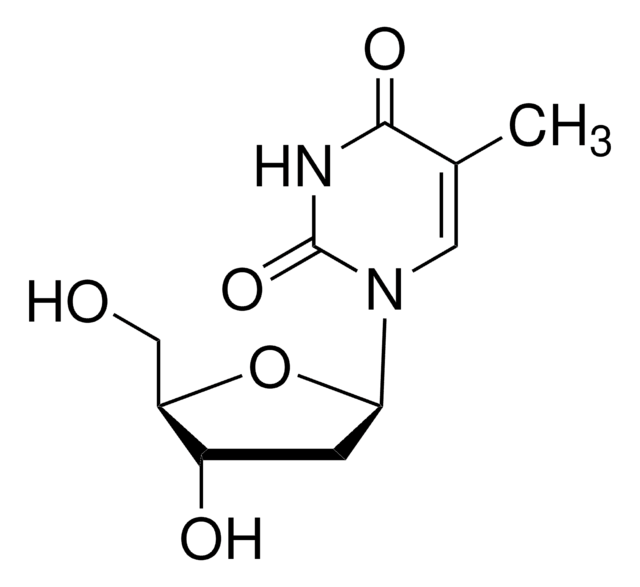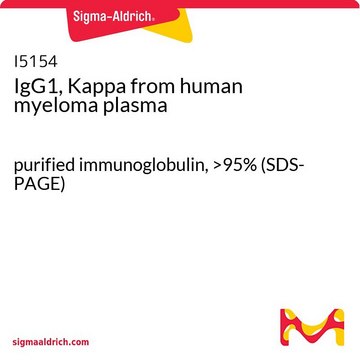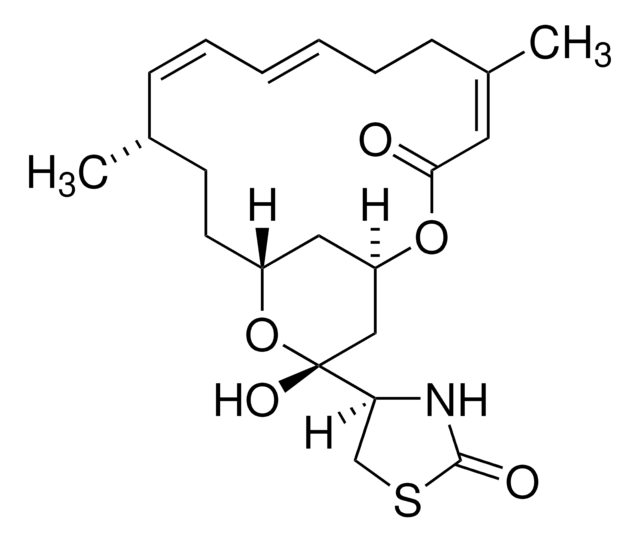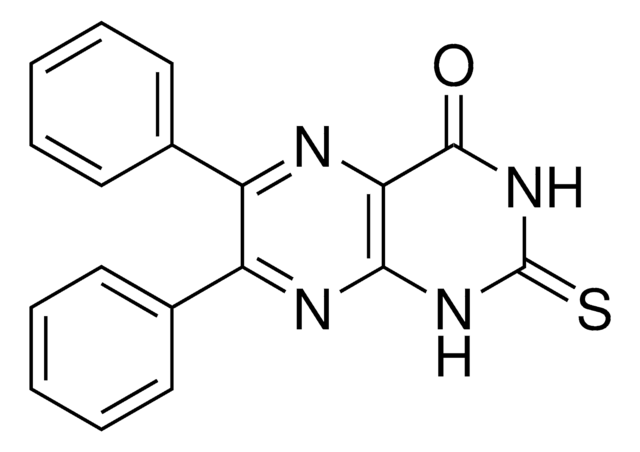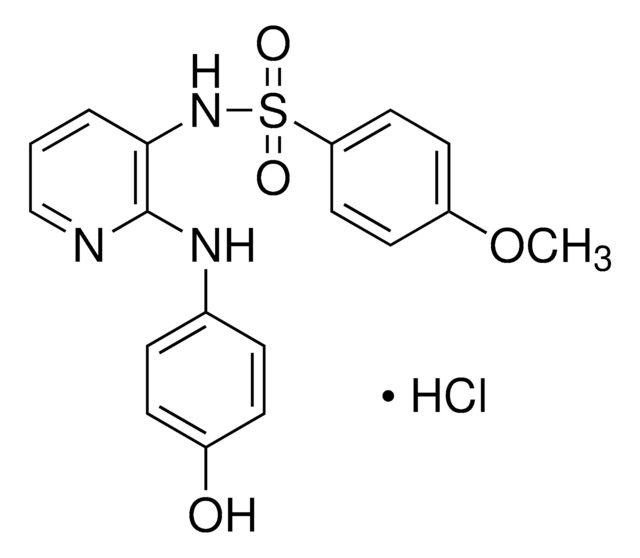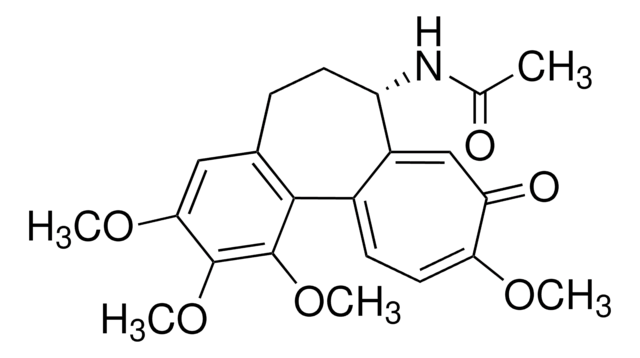M1404
Nocodazole
≥99% (TLC), powder
Synonym(s):
Methyl N-(5-thenoyl-2-benzimidazolyl)carbamate, Methyl [5-(2-thienylcarbonyl)-1H-benzimidazol-2-yl]carbamate, Oncodazole, R 17934, [5-(2-Thienylcarbonyl)-1H-benzimidazol-2-yl]-carbamic acid methyl ester
About This Item
Recommended Products
Quality Level
Assay
≥99% (TLC)
form
powder
mp
300 °C (dec.)
solubility
DMSO: soluble 10 mg/mL (may require heating)
H2O: insoluble
storage temp.
2-8°C
SMILES string
COC(=O)Nc1nc2cc(ccc2[nH]1)C(=O)c3cccs3
InChI
1S/C14H11N3O3S/c1-20-14(19)17-13-15-9-5-4-8(7-10(9)16-13)12(18)11-3-2-6-21-11/h2-7H,1H3,(H2,15,16,17,19)
InChI key
KYRVNWMVYQXFEU-UHFFFAOYSA-N
Gene Information
human ... TUBB(203068)
Looking for similar products? Visit Product Comparison Guide
General description
Application
Biochem/physiol Actions
Physical form
Signal Word
Warning
Hazard Statements
Precautionary Statements
Hazard Classifications
Muta. 2 - Repr. 2
Storage Class Code
11 - Combustible Solids
WGK
WGK 3
Flash Point(F)
Not applicable
Flash Point(C)
Not applicable
Personal Protective Equipment
Regulatory Listings
Regulatory Listings are mainly provided for chemical products. Only limited information can be provided here for non-chemical products. No entry means none of the components are listed. It is the user’s obligation to ensure the safe and legal use of the product.
JAN Code
M1404-10MG:
M1404-2MG-PW:
M1404-BULK:
M1404-10MG-PW:
M1404-50MG-PW:
M1404-VAR:
M1404-50MG:
M1404-2MG:
Certificates of Analysis (COA)
Search for Certificates of Analysis (COA) by entering the products Lot/Batch Number. Lot and Batch Numbers can be found on a product’s label following the words ‘Lot’ or ‘Batch’.
Already Own This Product?
Find documentation for the products that you have recently purchased in the Document Library.
Customers Also Viewed
Articles
Small Molecule CRISPR Enhancers
High titer lentiviral particles including beta-actin, alpha-tubulin and vimentin used for live cell analysis of cytoskeleton structure proteins.
Our team of scientists has experience in all areas of research including Life Science, Material Science, Chemical Synthesis, Chromatography, Analytical and many others.
Contact Technical Service




